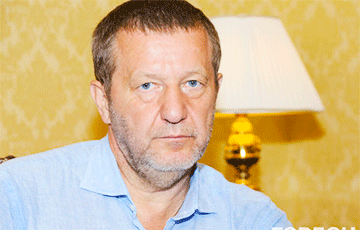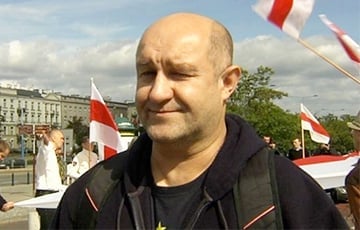It Looks Promising
3- ALFRED KOCH
- 26.11.2024, 11:40
- 13,520

Putin was counting on a different reaction.
Zelensky commented on the use by Russia of the new Oreshnik medium-range ballistic missile against the Ukrainian Yuzhmash plant in Dnipropetrovsk. In particular, he stated that "... expertise continues, work continues with partners to establish all the details and all the characteristics of this missile." He noted that the wreckage is subject to scrutiny.
Western journalists also had an opportunity to look at the wreckage of the Oreshnik. Reuters previously reported this, their correspondent managed to visit the place of the strike. As previously reported, the Yuzhmash did not receive any serious damage as a result of this attack.
It seems that the damage was not planned. On the part of Putin, this was a pure act of intimidation and therefore it did not solve any other tasks. How successful it turned out to be is difficult to judge.
The event is vividly discussed, almost all the media in the West noted with detailed publications on the theme of Putin's strike with the Oreshnik missile against Dnipro, but there were no any panic and the people did not took to the streets, demanding from their authorities urgent efforts to achieve peace with Russia – nothing like that. And it is unlikely that it will happen.
I cannot explain the reasons for the relatively sluggish reaction of Europeans to this attack. But I am convinced that Putin obviously counted on a completely different reaction from Europe. Most likely, in his imagination, immediately after the Oredhnik attack, his phone should have exploded with calls. Western (primarily European) leaders should have already asked him for talks, at which Putin would dictate them the terms of peace...
Nothing like that happened. Moreover, French Foreign Minister Jean-Noël Barrot admitted yesterday (that is, after the Oreshnik strike) in an interview with the BBC that French long-range missiles could be used against targets in Russia "for self-defence purposes", but did not specify whether French weapons had already been used in this way.
Macron this year has already declared his readiness to allow the launch of French missiles against the territory of Russia, but Barrot's statement is significant because it was made after the exchange of long-range missile strikes between Ukraine and Russia.
Barrot held talks with British Foreign Minister David Lammy the day before yesterday, at which he said that Ukraine's Western allies should not limit their support for this country and set "red lines" in this matter.
In an interview with the BBC, when asked if this could mean the likely participation of French troops in hostilities, Barrot replied: "We do not exclude any option."
"We will support Ukraine as intensively and for as long as necessary. Why? Because our safety is at stake. Every time the Russian army advances one square kilometer, the threat approaches Europe by one square kilometer," he said.
Well, it all looks very promising. Let's see what this will mean in practice.
So far, France has not differed much in terms of assistance to Ukraine, remaining in the second ten countries in terms of its volume. But maybe now something will change? Let's hope for the best.
In any case, so far, the West's reaction to Putin's threats inspires me. There is no fright, the rhetoric of European leaders is moderately harsh. I even cheered myself up somehow and now I look at them with a timid hope.
Glory to Ukraine!
Alfred Koch, Telegram











